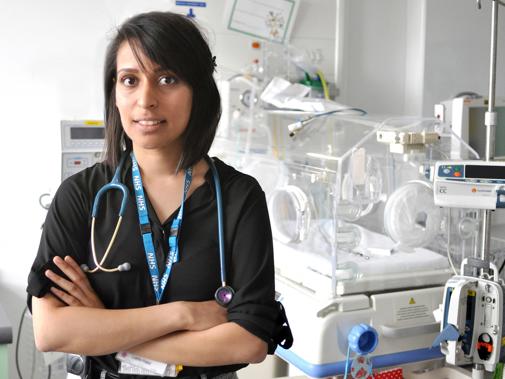It is that time of year again. For many doctors in training, such as me, the ARCP (annual review of competency progression) process will be occupying thoughts and – no doubt – causing some stress.
This year I have something of a reprieve as I am on maternity leave, but I can identify with those emotions. And I know how serious this can be as a process which determines whether you can immediately progress in your training, face delays or be at risk of losing your training post.
Each year I set out to give myself lots of time and I think this year will be different – I’ll prepare as I go along, get my evidence ready on a weekly basis so it isn’t a last-minute panic.
For whatever reason – not least because we’re all busy and the hours we work, let alone the stresses involved, are longer than many vocations – it never works that way.
Although I’ve been the same all the way through my education and career whether it is GCSEs, A-levels or medical school, so perhaps that is just me.
One thing that has always helped me, however, is having a plethora of leadership and management experiences to call on for the ARCP through my roles and responsibilities with the BMA.
Did you know that your BMA can support you in some leadership roles – and there are all sorts of options so you can tailor your experiences to your needs? Whether it’s being a representative locally at your trust or hospital or representing your colleagues nationally in a committee position.
My journey started with both of those things. I was both an elected BMA medical students committee member nationally, and also had a local role with the Liverpool medical students society.
I was able to make progress locally which had an immediate impact, using the resources and knowledge from my national position. This included medical student welfare, access to support and preparing for foundation training.
Nationally, I was involved in reshaping the UK Foundation Programme Application System, improving welfare and financial support for medical students. I was also involved in the equality, diversity and inclusion group at the BMA.
When I graduated I became the junior doctor local negotiating committee representative at my trust.
I worked with a staff, associate specialist and specialty doctor representative and a consultant representative and we sat with the management at the hospital and discussed the issues affecting doctors’ working lives. We were really well supported by our BMA industrial relations officer.
One of my proudest moments was when we reshaped the junior doctors’ mess. I came across my hospital mess as a foundation one doctor. It was awful. The furniture was broken, the toaster didn’t work, the fridge was horrible and to cap it all off we had a rodent problem. It was clear to me that this was no way to treat junior doctors.
We sat down as a team – the LNC, the mess committee and the trust’s medical director – outlining the issues and managed to secure a brand-new mess with new furniture, reclining chairs, and all the kitchen equipment we needed.
To some these might seem like trivial issues but a clean, safe and comfortable space to relax and recover is vital for doctors.
We actually went further than that and negotiated restrooms. It meant any doctor or staff member who felt they were too tired to drive could ask the estates team for a key and it was a free place to have the sleep you needed – whether that was just a nap for an hour or a full night of rest.
It made a huge difference to junior doctors. Even if you didn’t use the spaces you knew the trust – your employer – cared enough to invest in you.
These have all been invaluable experiences over the years. As a junior doctor you often play a leadership role at work anyway, but these are roles and responsibilities that can give you so much more. When it comes to your ARCP, not only can you tick off those competencies with ease but you have also developed useful skills as well making tangible differences.
If you are working on the dreaded ARCP – I wish you all the very best. If you would like to know more about getting involved with the work of your BMA, say hello to me on Twitter @DrLatifaPatel – my DMs are always open.
Latifa Patel is acting chair of the BMA representative body

